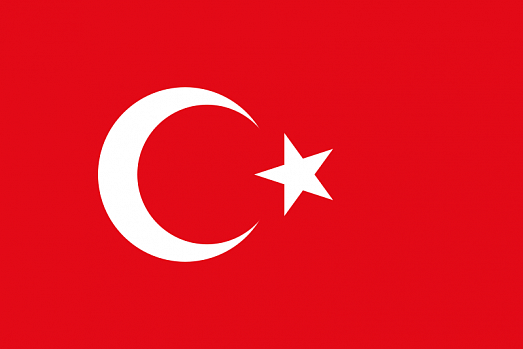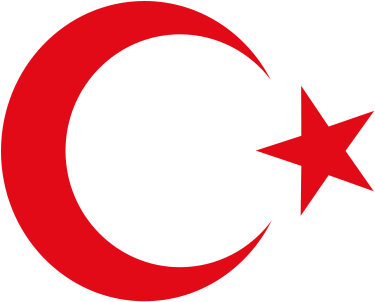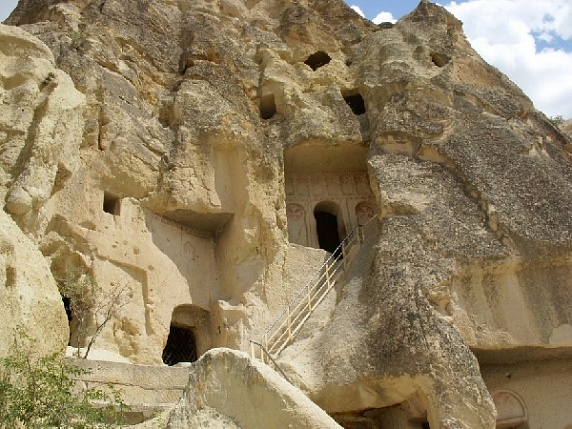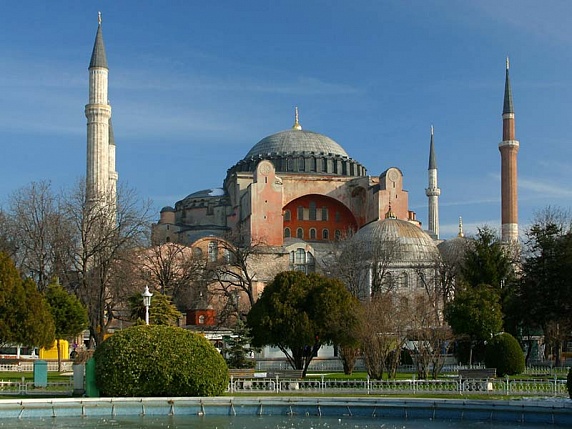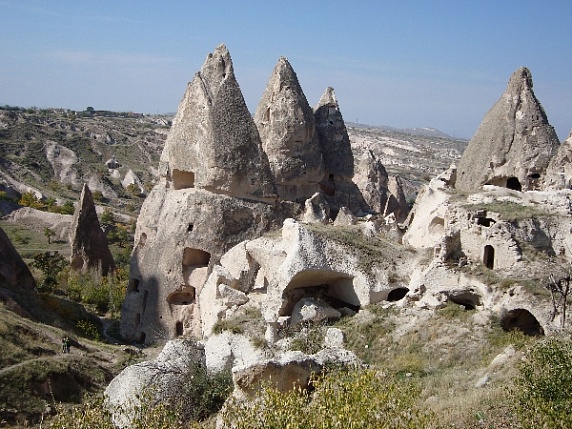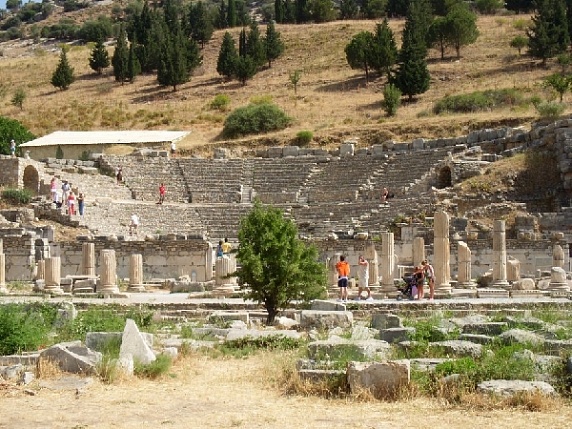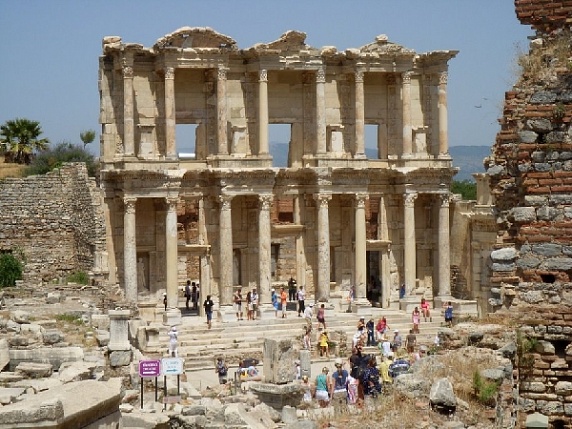 the Republic of Türkiye
the Republic of Türkiye
Foreign Minister Sergey Lavrov’s answers to questions from Rossiyskaya Gazeta, Moscow, February 4, 2020
Question: Tensions in Idlib are escalating. Everyone continues to make quite tough statements. People are dying. What can Russia do in this region? Can we somehow help launch diplomatic collaboration between Syria and Turkey and scale down tensions at least temporarily?
Sergey Lavrov: No one, not even Russia with its capabilities regarding the Syrian peace settlement that have expanded considerably over the past few years, can provide assistance on its own. When the terrorist ring closed around Damascus, the legitimate government of the Syrian Arab Republic asked us for military assistance. Russia responded under a decision of President of Russia Vladimir Putin, and the situation changed drastically.
It should be recalled that during that period, in the summer of 2015, none of our Western and other foreign partners even mentioned the need for a political process. Everyone expected a military victory over the so-called “Bashar al-Assad’s regime.” When that regime, which, in reality, is the legitimate government of a country, a full-fledged UN member, not only held out but also reclaimed most of the lost territories, with the assistance primarily from Russia and also from Iran (which also received the relevant legitimate request), various parties which had never discussed the political process before began to talk about this matter more insistently. Understandably, this changes the situation on the ground. I would like to recall that Russia, Turkey and Iran played a decisive role in launching a political process.
Staffan de Mistura, the previous UN Special Envoy for Syria, delayed the start of fair and equitable talks between the government and the opposition under the colossal influence of Western countries and tried to secure more favourable terms for al-Assad’s opponents under the Geneva format. The talks were put off several times in 2016. The process began in April, and all this was later rescheduled for May, then August, September and October. Therefore, the Geneva format produced no results. At that time, in late 2016, Russia, Turkey and Iran showed initiative and established the Astana format, which aimed for the first time to bring together the government of al-Assad and representatives of the armed opposition, rather than the foreign-based opposition that virtually does not represent anyone and which leads an affluent life in the capitals of regional countries and in Europe. In effect, those looking at each other through gunsights “on the ground” sat down at the common negotiating table together for the first time.
The Astana process has stood up to reality. A year after it was launched the level of violence “on the ground” has considerably declined. The Syrian National Dialogue Congress was held in Sochi, leading to the adoption of documents that have become the foundation for the political processes we are now seeing, including its 12 principles. The Astana process helped the new UN Secretary-General’s Special Envoy for Syria, Geir O. Pedersen, to form functioning parties from the opposition, the government and civil society, and to coordinate order in the work and rules of procedures, etc. Let me emphasise that this was done with Turkey, Iran and Russia’s permanent and consistent support. This is contrary to the actions of Western states that tried to disrupt the forming of the Constitutional Committee, and as a result, it began functioning a year later than it could have if our German and French colleagues had implemented the agreements reached at the summit of Russia, Turkey, France and Germany in Istanbul on October 27, 2018.
Nevertheless, the Constitutional Committee process is underway. In parallel, as you know, the Astana process initiated the concept of de-escalation zones. Four de-escalation zones were established. The power of the lawful government was restored in three of the former de-escalation zones. The armed opposition joined the political process. Meanwhile, all those identified by the UN Security Council as terrorist groups herded together into the remaining de-escalation zone of Idlib and also nearby Aleppo and Hama. President of Russia Vladimir Putin and his Turkish counterpart Recep Tayyip Erdogan reached special agreements on this zone.
This issue was reviewed twice – in September 2018 and October 2019. In both cases Russia and Turkey adopted specific documents that included their commitments to oversee Idlib, primarily in terms of civilian security and the distribution of humanitarian relief – food, medications and other humanitarian goods, and guarantees of overall security in the context of ending the conflict. A truce agreement was signed with the reservation that the terrorist groups blacklisted by the UN Security Council would not and may not be covered by the truce. At the same time, the sides agreed to create a 10-20 km demilitarised strip in this de-escalation zone. This was done to reduce the risk of attack from the radicals in the Idlib zone against Syrian military personnel and the Russian Khmeimim Air Base that had been attacked by drones dozens of times.
Yesterday I talked again with my Turkish counterpart – Foreign Minister Mevlut Cavusoglu. Our military personnel are constantly in touch.
Regrettably, so far, Turkey has failed to fulfil a couple of its key commitments that were designed to resolve the core of the Idlib problem. It was necessary to separate the armed opposition that cooperates with Turkey and is ready for a dialogue with the government in the political process, from the terrorists of Jabhat al-Nusra, which became Hayat Tahrir al-Sham. Both are blacklisted as terrorist groups by the UN Security Council, so neither Jabhat al-Nusra nor the latest version, Hayat Tahrir al-Sham, has anything to do in Idlib. The most we agreed on back in 2019 was that each party must observe the truce. But even after a third reminder by Russia and Turkey to those in the Idlib zone, the criminals I mentioned have not ceased their provocative actions. Another attack by a drone against our base in Khmeimim was made the day before yesterday. It was curbed by our air defence systems. Syrian military positions and civilian facilities beyond the Idlib zone are regularly subjected to shelling.
Another reason for this state of affairs is that the 10-20 km demilitarised strip has not been established inside the Idlib zone, something we reminded our Turkish partners of as well. We will push for complying with all the provisions of the decisions made by the presidents of Russia and Turkey. Reportedly, Turkish troops are being deployed in the Idlib zone, and there have been clashes between them and the Syrian army. Our military are monitoring this situation. According to our information, which has been made public by the General Staff, the Turkish military have advanced to certain locations inside the Idlib de-escalation zone without notifying us, and we were thus unable to notify the Syrian army about it either. Strikes were delivered, and Turkey is threatening retaliation. This is very sad. We urge them to strictly comply with the 2018 and 2019 Sochi accords on Idlib.
The second issue arising from the risks and threats from the Idlib de-escalation zone is the fact that hundreds of militants, including al-Nusra and Hayat Tahrir al-Sham fighters, are moving from there to Libya in order to build up hostilities in that country. Again, based on the factors that I mentioned, Russia cannot overcome this challenge alone, but it can push for the unconditional and full implementation of the existing agreements on Idlib. We are discussing this with our Turkish partners.
Question: During his visit to Kiev, President Erdogan gave an evaluation of the Crimean Tatars’ situation in Crimea. What can you tell us about this?
Sergey Lavrov: Nothing new was expressed regarding Turkey’s position on Crimean Tatars. During talks with President Putin, which take place regularly, President Erdogan speaks from the same positions. We are aware of Ankara’s stance. We believe that one needs to see what is happening in Crimea with his own eyes, not second hand. Many people have visited Crimea, and more are continuing to go there, and not just cultural figures at festivals like the jazz festival in Koktebel, or cultural and economic forums. In addition to representatives of civil society, business and culture, many politicians, including from Western and NATO countries, as well as members of parliament, go to Crimea. They all can see for themselves that everything that is being said about human rights violations with respect to Crimean Tatars in Crimea is a blatant lie.
Any appeals to Russia to allow foreign observers in are worthless cheap talk. If someone wants to go there – by all means go there, no problem, from mainland Russia across our beautiful new bridge. Those who relentlessly demand the admission of observers insist that they go to Crimea from the territory of Ukraine, thereby emphasising the politicised nature of their visit. They are oblivious to the fact that anyone who wanted to, has already been there a long time ago and seen everything they wanted to see. Perhaps, these are the people who will support Mr Dzhemilev and the other leaders of the so-called Mejlis of the Crimean Tatar people’s criminal plan to march on Crimea in early May and who will stop at nothing. Western advocates of this position on the Crimean Tatar issue are adding fuel to these initiatives, which will only end badly. But at the very least, we will not allow anyone to jeopardise the safety of the people in Crimea.
President Erdogan has an open invitation to visit Crimea. He has not turned it down. He was invited to attend the upcoming opening of Simferopol’s largest mosque. There has never been a mosque in Crimea. Under Ukrainian rule, no one ever thought about Crimean Tatar religious rights. As you may be aware, their language received the status of an official language, along with Russian and Ukrainian, only after Crimea reunited with Russia. Only then did political reform and land amnesty take place.
So, no one has ever come up with a single fact that the rights of the Crimean Tatars or any other ethnicity in Crimea have ever been violated.
Of course, I very much hope that our Turkish neighbours will nevertheless be objective in their Ukrainian policy, on one hand, and in their Crimea policy, on the other, and avoid playing into the hands of the nationalist politicians and radicals who are planning this march on Crimea, including the use of force, and will not encourage these sentiments by resorting to Bandera-like rhetoric.
Question: Today there is a lot of news in the media on preparations for the next big US exercise in several East European countries. In the context of a new cooling in Russia-NATO relations, are we seeing a new cold war brewing? For example, Defender-Europe 20.
Sergey Lavrov: A big operation was carried out to build up armed forces in Europe during the Cold War, including increased US presence. There was operation Return of Forces to Germany (REFORGER), when the US came to practically live in Germany, which has dozens of military bases today. There is an enormous number of foreign militaries in today’s Germany. But this is NATO’s concern.
Defender means there is a need to defend. Defend from whom? They say not from Russia, but from an enemy that can rival the military potential of NATO. It is difficult to find a proper, comparable target to apply this force to, because if we look at the official data – not Russia’s but foreign information – on military expenses and military equipment, NATO members in Europe alone, without the US, have almost twice as much military force as we do, in all kinds of armaments (tanks, military aircraft, attack helicopters, infantry fighting vehicles, armored vehicles, attack ships and submarines). I have no idea where they have found an enemy that can rival them. We are definitely not the prevailing military force in Europe, NATO is. Even though the entire space here has too many military facilities and armaments, even though NATO’s progress eastwards has already created serious problems in the area of strategic stability in Europe, NATO continues to unite with the EU. NATO members try to hold joint military exercises and involve neutral states such as Finland and Sweden under the pretext of their EU membership. They have come up with the “military Schengen” in the context of cooperation between NATO and the EU, which includes upgrading all the transport routes to the Alliance’s eastern border so that the largest military hardware can go east easily. I believe this is enough to realise how dangerous such games can be. Of course, we must respond to this. The Defender exercise scheduled for April-May (however, the preparations began long ago) means deploying over 30,000 units of US equipment and over 20,000 US soldiers in addition to the troops that are already stationed there, which I have mentioned. By the way, formally this is a US military exercise, but NATO partners are invited, too. It is interesting; I don’t know why it is so. A possible reason for this is that it is easier for the Americans to plan and implement everything as they want, without binding themselves even symbolically by some NATO discipline, although at NATO, the Commander of the US European Command is at the same time the NATO’s Supreme Allied Commander Europe. This exercise involves over 40,000 people in total. Of course, we will respond. We cannot ignore these processes that raise great concern, but we will respond without creating any unnecessary risks.
This is inevitable. I hope that any normal military officer and politician understand this. Those who provoke such unjustified exercises want reciprocal measures to follow, to continue to escalate tensions. However, there is also another important aspect here: everything we do in response to NATO’s threats to our security we only do in our own territory. All our nuclear weapons are also located in our own territory unlike the American ones.
